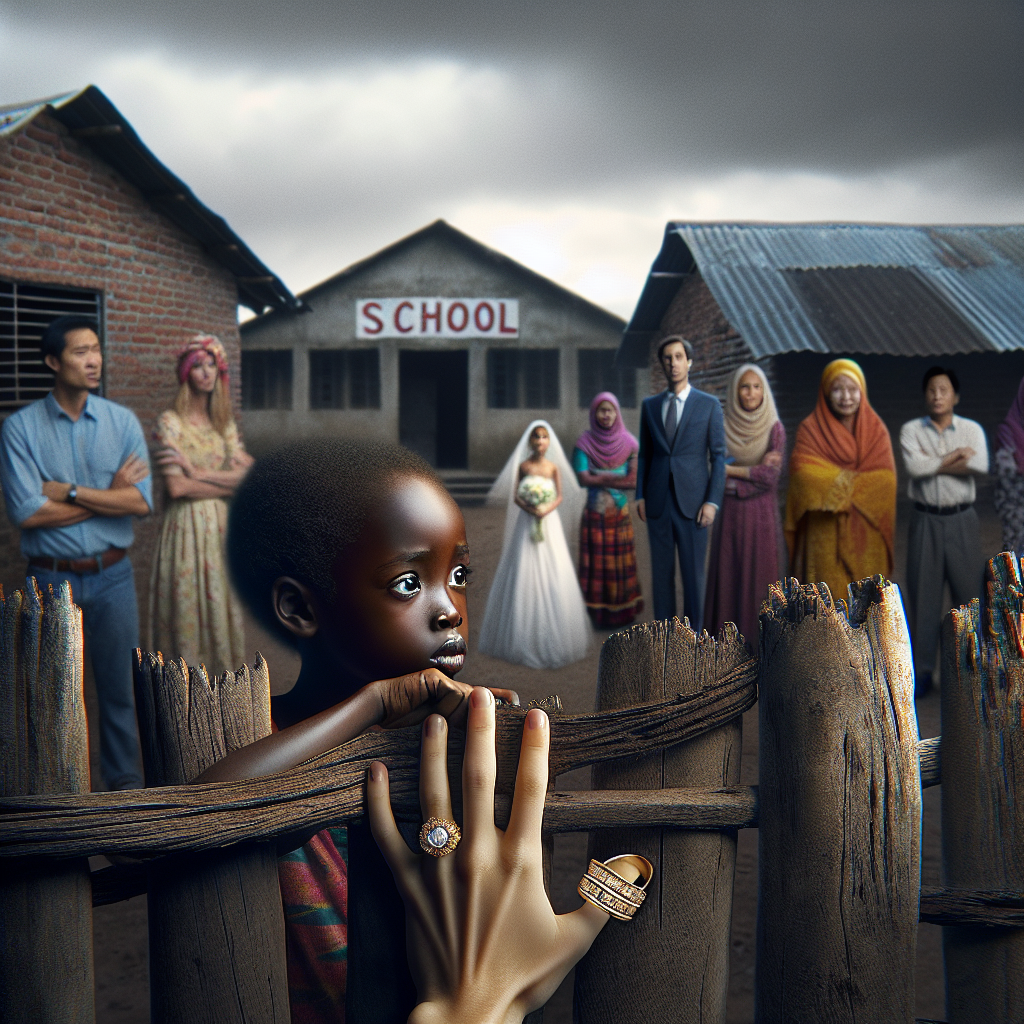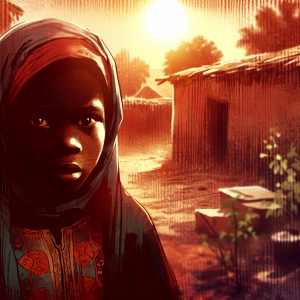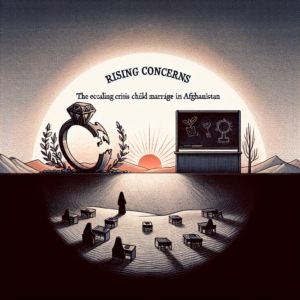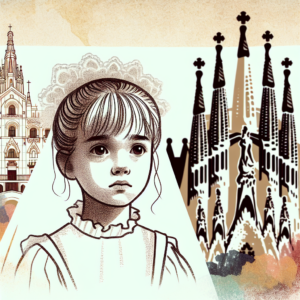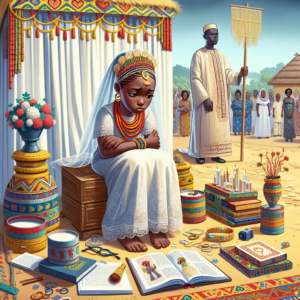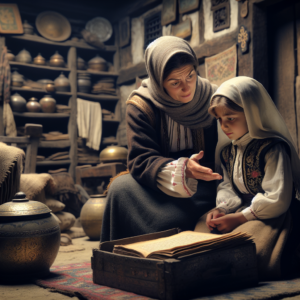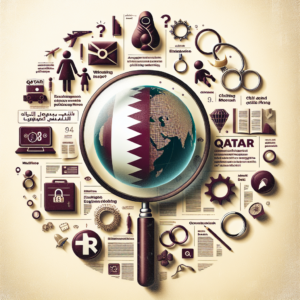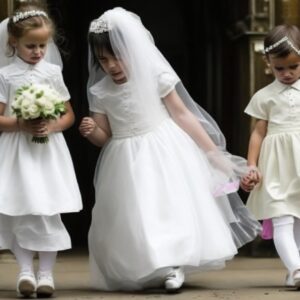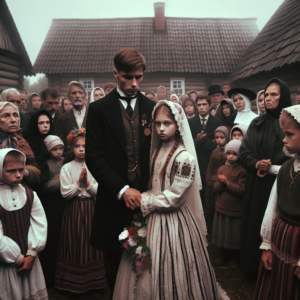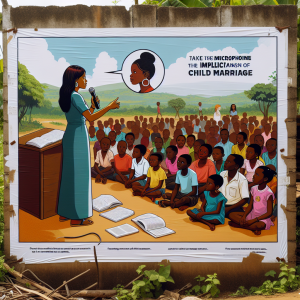#ChildMarriage #EndChildMarriage
Shattering the Shackles: The Struggle Against Child Marriage in Guinea
Located in the vibrant West African region, Guinea is a nation celebrated for its cultural richness and historical significance. However, lurking beneath its colorful exterior is a grave issue that stifles its growth and the prospects of its young female population: child marriage. This deeply ingrained practice, fueled by tradition, economic struggles, and gender disparities, not only steals the innocence of young girls but also limits their access to education, health care, and economic advancement. This article sheds light on the intricate issue of child marriage in Guinea, examining its causes, effects, and the relentless fight for the abolition of this human rights infringement.
The Scope of the Issue
In Guinea, child marriage, which refers to any formal marriage or informal union before reaching 18, is a grim reality for numerous girls. UNICEF reports that Guinea possesses one of the highest rates of child marriage worldwide, with about 52% of girls being married off before they turn 18. This practice doesn’t only infringe upon the rights of children but also obstructs the country’s developmental and progressive endeavors.
Driving Factors Behind Child Marriage in Guinea
The persistence of child marriage in Guinea can be attributed to various factors, including:
- Economic Strain: Financial hardship compels many families to marry off their daughters early in exchange for dowries.
- Cultural and Traditional Beliefs: In numerous communities, the custom of child marriage is a longstanding tradition.
- Education Barriers: The lack of educational opportunities for girls often leads to the perception that marriage is their only prospect.
- Gender Discrimination: The societal undervaluing of women and girls plays a significant role in the perpetuation of child marriage.
The Grave Consequences
The repercussions of child marriage for young girls are severe, touching all facets of their lives:
- Health Hazards: Early childbearing is associated with increased risks of death and complications for both the mother and child.
- Lack of Education: Girls who marry young often have to leave school, which limits their future opportunities and continues the cycle of poverty.
- Economic Detriment: Child marriage acts as a barrier to economic progress and efforts to alleviate poverty.
- Human Rights Violations: It deprives girls of the freedom to make personal life choices, perpetuating gender inequality and mistreatment.
Champions for Change
Esteemed authors and activists for human rights have consistently denounced practices that infringe upon human rights, such as child marriage. Malala Yousafzai, a Nobel Prize laureate, famously stated, “I raise up my voice—not so I can shout, but so those without a voice can be heard.” These words echo the struggles of young girls in Guinea, calling for global attention and action against the injustice of child marriage.
Chimamanda Ngozi Adichie, a celebrated advocate for gender equality and author, stresses the need for a shift in the narrative surrounding gender and tradition. She asserts, “Culture does not make people. People make culture,” pointing to the potential for societal transformation towards greater equality.
Battling Child Marriage in Guinea
The endeavor to eliminate child marriage in Guinea involves a comprehensive strategy that includes government action, support from international bodies, and grassroots activism:
- Legislative Measures: While legal provisions exist setting the marriageable age at 18, enforcing these laws is a major challenge.
- Educational and Empowerment Initiatives: Keeping girls in school and raising community awareness about the dangers of child marriage are essential steps.
- Financial Motivations: Offering financial incentives to families can help postpone the marriages of their daughters.
- Community Involvement: The involvement of community and religious leaders in discussions and advocacy efforts is crucial for altering societal norms.
Looking Ahead
To successfully abolish child marriage in Guinea, a persistent and holistic approach is necessary. Key strategies include:
- Enhancing Laws and Their Implementation: Strengthening the enforcement of existing laws against child marriage, along with imposing penalties for violations, is critical.
- Investing in Female Education: Access to quality education for girls can delay marriage and open up broader life opportunities.
- Supporting Families Economically: Addressing the financial causes of child marriage is vital for its eradication.
- Transforming Social Attitudes: Education and advocacy efforts are needed to shift societal views of girls from being seen as brides to being recognized as valuable community members.
In Conclusion
The crusade against child marriage in Guinea is a fight for human rights, gender equality, and the future of numerous young girls. It demands a united effort from governments, communities, and individuals to dismantle the traditions and economic constraints that sustain this practice. As stated by human rights advocate Nada Al-Ahdal, “Protecting human rights is not an option, but a responsibility for all of us.” It is incumbent upon us all to elevate awareness, push for change, and back the initiatives that empower young girls in Guinea and globally to escape the clutches of child marriage. By joining forces, we can shatter the shackles and lay the groundwork for a fairer, more equitable future.
#NadaFoundation
#ChildMarriage
#Nada_Foundation
#NadaAlahdal
#Breaking #Chains #Fight #Child #Marriage #Guinea
breaking-the-chains-the-fight-against-child-marriage-in-guinea



